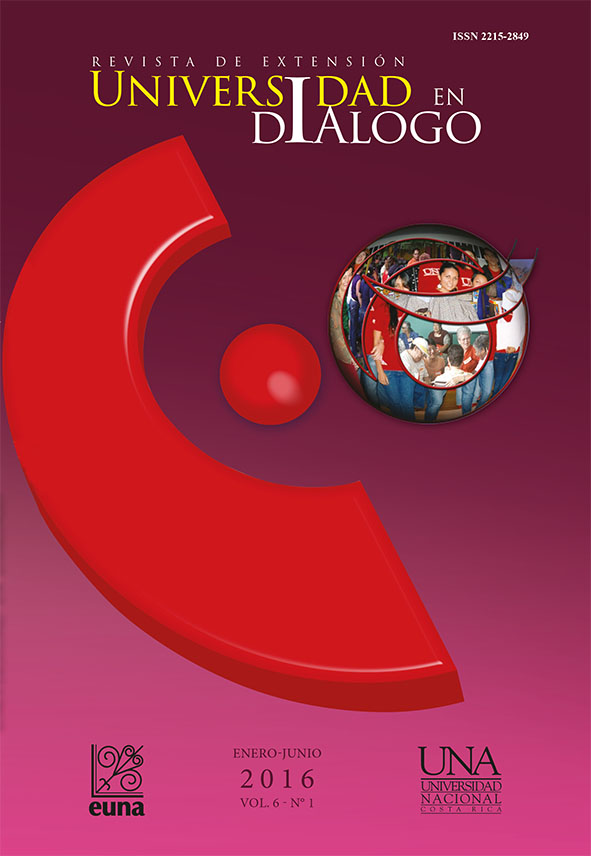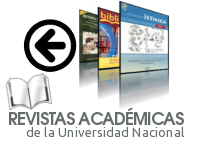The Certificate of Sustainable Tourism an opportunity for Carbon Neutrality Standard INTE -12-01-06:2011
DOI:
https://doi.org/10.15359/udre.6-1.12Keywords:
Sustainable tourism, Certification for Sustainable Tourism (CST), carbon neutrality INTE -12-01-06, 2011Abstract
Tourism is a major source of foreign exchange in the world by reporting “spending by international visitors on accommodation, dining, entertainment, shopping and other goods and services accounted for destinations worldwide revenues estimated at 1,159,000 million United States dollars (873,000 million euros) in 2013 growth exceeded the long-term trend, reaching 5% in real terms (taking into account fluctuations in the exchange rate and inflation). The rate of revenue growth was equivalent to the increase in international tourist arrivals, which also increased by 5% to 1,087 million in 2013, compared to 1,035 million in 2012 “according to the press release of 14 May 2014 (World Tourism Organization: 2014, p.1), and represents 29% of exports (WTO: 2014, p.1). In Costa Rica received in 2013 the amount of $ 2. 253.3 halved tourism as tourism directory (ICT., 2013 p. 47), surpassing the export of coffee, bananas and pineapple. In Costa Rica 28% of the territory is part of the National System of Protected Areas, taking 2nd place in the world still Switzerland 1st (Programa de Estado de la Región:2013). He is considered one of the top three destinations for ecotourism (NATGEO: 2013).
References
Arley, A. y Vasconcelos, K. (2014). Definición del término Carbono Neutralidad. s. e. Heredia, Costa Rica
Asamblea Legislativa (2013). Proyecto de Ley Marco de Cambio Climático. Expediente 18860. San José, Costa Rica.
Ceballos-Lascurain, H. (1991). Tourism, eco-tourism and protected areas. En Kusler, (ed.) Eco-tourism and Resource Conservation. Vol. 1. Eco-tourism and resource conservation project.
Cepeda, G. (2006). La calidad en los métodos de investigación cualitativa: principios de aplicación práctica para estudios de casos. Cuadernos de Economía y Dirección de la Empresa, 29, 57-82.
Honey, M. (2001). Protecting Eden; Setting Green Standards for the Tourism Industry. Environmental, 45(6), 8 -22.
Monge, R. (2003). El sistema de CST: Una norma consolidada. San José, Costa Rica: Comisión Nacional de Acreditación de la CST, Secretaría Técnica, pp. 1-15.
National Geografic. (2013). Top Ten de destinos Eco turísticos. Canal de televisión
Organización Mundial de Turismo. (2004). Desarrollo sostenible del ecoturismo. Una compilación de buenas prácticas en las PYME. Buenos Aires: OMT. Recuperado de http://unrn.edu.ar/blogs/maydt/files/2012/09/OMT-DesSostTuris.pdf
Organización Mundial de Turismo. (2014). Conceptos y Definiciones. Desarrollo Sostenible del Turismo. Definición conceptual. Recuperado de http://www.world-tourism.org/sustainable/esp/concepts.htm
Programa Estado de la Región. (2013). Informe del estado de la región en desarrollo humano sostenible. San José, Costa Rica: Programa Estado de la Nación.
Rainforest Alliance. (2002). Buenas Prácticas para el Turismo Sostenible. Una guía para pequeño y mediano empresario. Economía, 15, 375-418.
Saravia, D. (2002). Unidad de Ecoturismo. Managua: Administración de empresas turísticas y Hoteleras.
Sociedad Internacional de Ecoturismo. (2005). Davo´s declaration responding to global challenge. Second International conference on climate change and tourism. Davos, Suiza: TIES/IES.
Sociedad Internacional de Ecoturismo. (2002). Memoria de la Declaración Mundial del Ecoturismo. Quebec: TIES/IES (9 pp.)
Vasconcelos, K. Balbastre, F. y Redondo A. (2011). Is certification for sustainable tourism complementary to ISO 9000 certification? The case of the Parque del Lago Hotel in Costa Rica. Pasos Revista de Turismo y Patrimonio Cultural, 9 (4), 543-557.
Vasconcelos, K. (2012). La Certificación de Sostenibilidad Turística (CST) como una norma facilitadora para la innovación en la empresa turística. Revista de Ciencias Económicas, 30 (enero-junio).
Downloads
Published
How to Cite
Issue
Section
License

La Revista y cada uno de los artículos que se publican están licenciados por Creative Commons Atribución No comercial Sin derivadas 4.0 Internacional.



